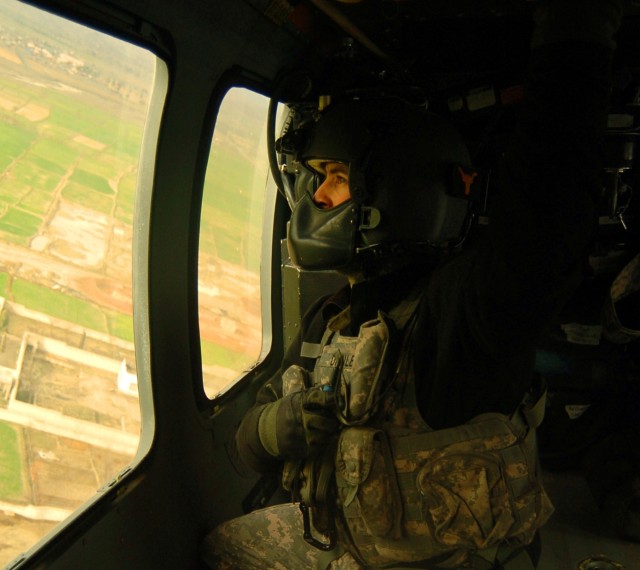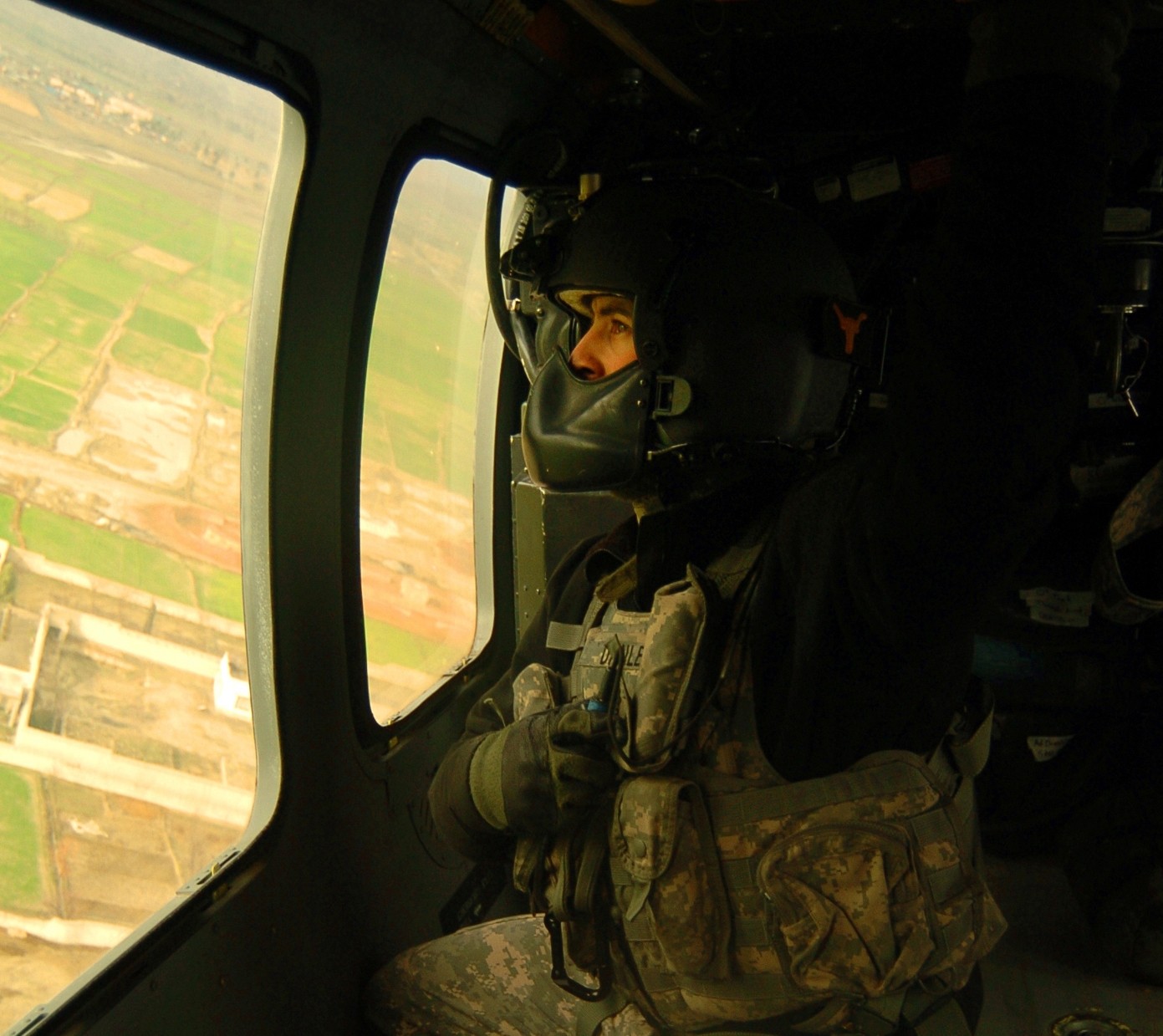
FORWARD OPERATING BASE SALERNO, Afghanistan (Army News Service, Feb. 23, 2007) - Long hours of stressful work faced by deployed troops, combined with little privacy and not much free time, can end up taking a mental and emotional toll. Fortunately, Soldiers serving in every Brigade Combat Team in the Army will now have a greater opportunity to visit a behavioral health clinic and speak to a trained specialist.
Behavioral health used to be a division-level function, but the Army's adoption of a modular brigade combat team structure changed that, explained Spc. Alex Townsend, a behavioral health specialist assigned to the 82nd Airborne Division's Company C, 782nd Brigade Support Battalion, 4th Brigade Combat Team.
"Since the modularity has taken place, they want people at the brigade to focus on (behavioral health)," Townsend said.
Paratroopers of the 4th BCT are now facing the stresses caused by deployment as they begin a tour in Afghanistan in support of Operation Enduring Freedom.
"You are living and working with the same people for months, and there is literally no place to escape for a moment," said Capt. Maria A. Kimble, a behavioral health officer assigned to Co. C, 782nd Bde. Spt. Bn.
In order to help the troops, the behavioral health clinic offers a variety of services, from smoking cessation to command consultation, but the main service it offers is individual and group counseling to Soldiers. These services give Soldiers an opportunity to just speak their mind to someone, Kimble said.
"Basically, it's talk therapy," Kimble said. "Someone has something on their mind, whether it is something that developed from operational issues or home-front issues such as worrying about their children, girlfriend or boyfriends back home, or finance problems. We assist with anything that they want help coping with or resolving."
Kimble said her past experiences and the knowledge she has gained working with veterans are helping her during this deployment.
"I have experience working with World War II veterans and Vietnam veterans who have been appropriately diagnosed with post-traumatic stress disorder and have been dealing with it for years," Kimble said. "If you speak to them now, they will say they felt they were weak if they had to talk to someone. Now, they say if there's one thing (I) can convey to today's Soldiers it's that it does make a difference to just talk to someone and get it out."
The critical-event debriefing is another service the behavioral health clinic will offer. A CED is a group-counseling service conducted after a potentially traumatic incident that could affect the Soldiers involved.
"I strongly believe in the critical-event debriefing," Kimble said. "These are done whenever there are extreme tragic incidents Soldiers are involved in. ... They are very hard for the Soldiers to handle on their own."
These efforts are designed to keep paratroopers in the fight and have them perform their duties at 100 percent, Kimble added. By coordinating with the ministry teams and unit leaders, they are trying to maximize the effectiveness of their care.
"If a command is having a particular problem, we will develop group sessions specifically for that problem," Kimble said.
Kimble has seen firsthand the success these programs can have, having been deployed to Iraq in a similar capacity. There, Kimble treated more than 800 Soldiers and conducted 30 CEDs.
"I had one Soldier, he didn't think he would have made it that far through the deployment if wasn't for being able to come in and just talk things out," Kimble noted.
Clinic members will be available at their offices on base, and will also travel throughout Regional Command East in Afghanistan to search out Soldiers in need of help.
"Per the new regulations, part of our mission is prevention, which you can't really do sitting in an office," Kimble said.
While the behavioral health personnel are actively providing help for the Soldiers of Task Force Fury here, they also are combating the stigma attached to their profession at times, Townsend said.
"Don't be scared or worry that it will be detrimental to you or your career to come here, because if you're at a low, we are here to help bring you up," Townsend said. "And we are here to help you maintain that."
Townsend explained that the old idea of not talking about the stress of deployment or the violence of combat is out of date.
"It was mainly due to not realizing how beneficial behavioral health can be to the solider or Paratrooper in the Army," he said.
The success of their operations is evident in the response behavioral health personnel receive from the Soldiers they treat, Townsend said.
"People tell us all the time, 'Thank you,'" Townsend said. "They come back in just because they wanted to say thanks."
(Pfc. Matthew Leary writes for the Task Force Fury Public Affairs Office.)

Social Sharing